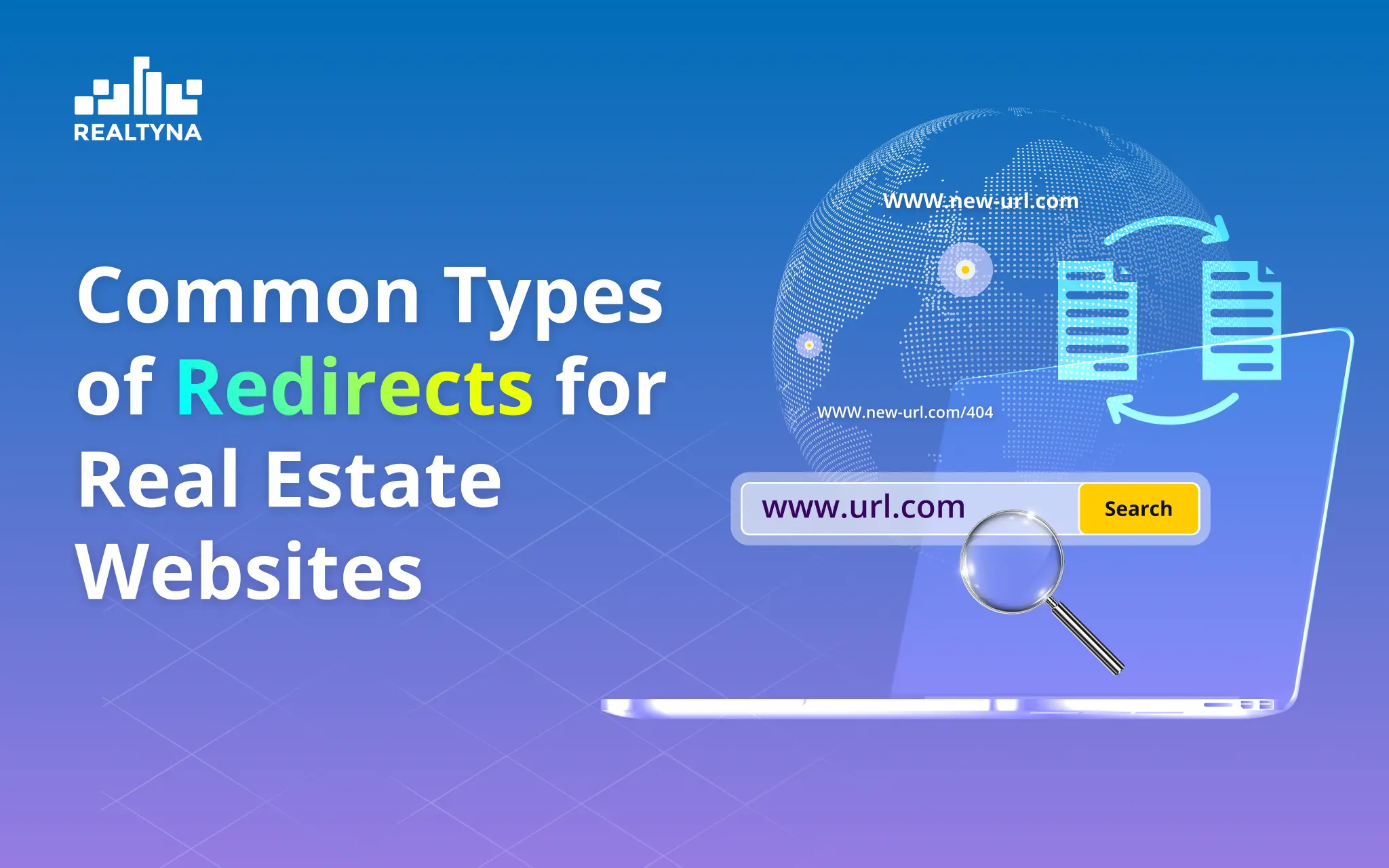
The Essential Guide to Website Redirects for Real Estate Agents
You know that feeling when you click on a link and it takes you somewhere totally unexpected? That’s the result of redirects, and they’re not always a bad thing.
Properly implemented redirects can improve your site’s user experience and search engine optimization.
In this beginner’s guide, we’ll walk through what each type of redirect is, when to use them, and how to set them up.
What Are Website Redirects and Why Do You Need Them?
Website redirects automatically send visitors from one URL to another. It:
- Improve User Experience
- Maintain Search Rankings
- Prevent 404 Errors
- Consolidate Resources
Common Types of Redirects for Real Estate Websites

There are a few common types of redirects you should be aware of:
301 Permanent Redirects
A 301 redirect is a permanent redirect from an old URL to a new URL. This is used when a page has been moved to a new location. 301 redirects pass on the link equity of the old page to the new page, so search engines recognize the new page as the canonical version. For real estate agents, use 301 redirects when reorganizing or restructuring your website.
When Should You Use 301 Redirects?
301 redirects are permanent redirects that pass on all the link equity (ranking power) to the new URL. You’ll want to use these when you’re permanently moving or deleting content.
302 Temporary Redirects
A 302 temporary redirect is used when a page has been temporarily moved to a new location. The redirect lasts for a specified period before expiring. 302 redirects do not pass on link equity from the old page to the new page. Only use 302 redirects in temporary situations, such as when setting up a new page before launching it.
When Should You Use 301 Redirects?
For example, if you’re running an event and want to redirect visitors from the event homepage to the current year’s page, a 302 redirect would be good since next year you’ll want to redirect to the new event page.
307 Temporary Redirects
A 307 redirect is similar to a 302 but tells the browser to resubmit the request to the new URL using the same method (POST, GET). Use a 307 redirect when a form submits to one URL but you temporarily need to redirect it to a new URL.
When Should You Use 307 Redirects?
You should use a 307 redirect when you need to temporarily move a webpage to a new URL, but you plan on the original URL being functional again in the future
Redirect Best Practices for SEO and User Experience

URL Structure
For the best user experience, use simple, easy-to-understand URLs without excessive parameters or variables. A clean URL structure also helps search engines better understand your site hierarchy. Consider using URLs that contain your targeted keywords, such as www.yourwebsite.com/luxury-homes-for-sale.
Avoid 404 Pages
Broken links or 404 error pages create a poor user experience and can negatively impact your search rankings. Set up 301 redirects for any deleted pages or content that has moved to a new URL. For any 404 errors you can’t avoid, create a custom 404 page that links to related content on your site.
Redirect Chains
Avoid using a series of multiple redirects to get from an old page to a new one. This creates a poor user experience and can damage search rankings. Use a single 301 redirect to send users and search engines directly to the new page.
Subdomain to Subfolder Redirects
When migrating content from a subdomain to a subfolder on your main domain, properly redirect the subdomain to the new subfolder URL. For example, redirect homes.yourwebsite.com to yourwebsite.com/homes. This passes link equity to the new page and provides a seamless user experience.
In the end, using redirects with sufficient SEO knowledge can improve your website’s visibility and performance.
The type of redirect you choose depends on whether the move is permanent or temporary and how much information needs to be passed to the new URL. Paying attention to these details will ensure your users and search engines can navigate your site with ease.
There are lots of things you should be aware of when we talk about real estate SEO, here are some related subjects you can learn about:
Thanks for reading this blog post.


Sorry, the comment form is closed at this time.